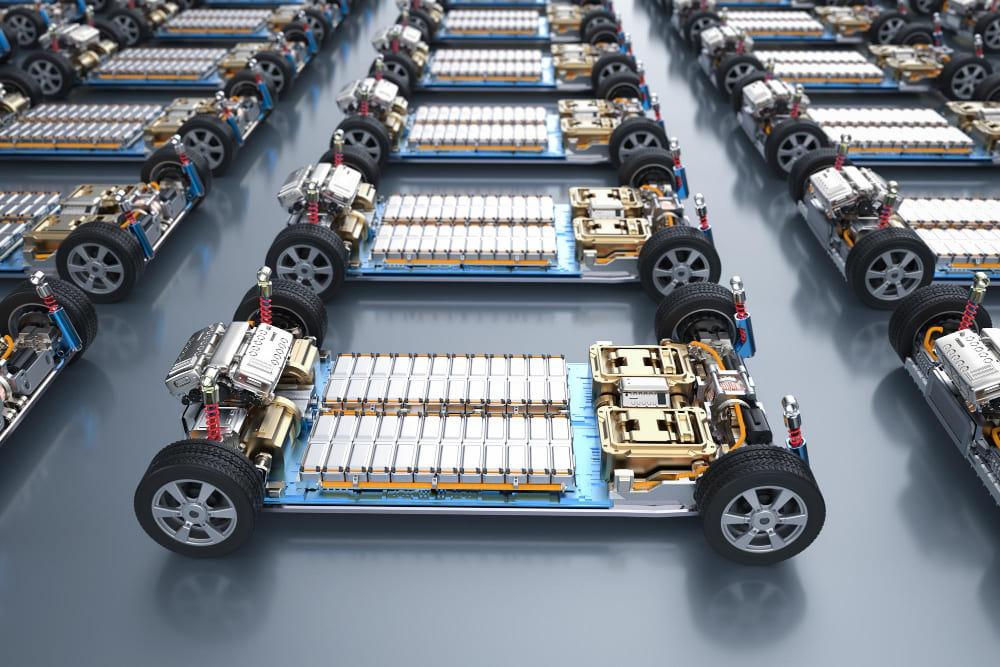The transportation industry is currently experiencing a technological revolution, and electric cars are at the forefront of this transformation. As we strive towards a sustainable future, these eco-friendly vehicles are gaining popularity and are poised to reshape how we move around.
Ahead, we’ll explore how electric cars are shaping the industry and what the future holds for this exciting technology. Keep reading to learn more!
Trends in the Electric Car Industry

As the electric car industry keeps growing, EVs’ technological trends start taking everyone’s attention. The two current hottest trendings are electric car monopolization and battery longevity.
Electric Car Monopolization
The electric car industry has been experiencing monopolization, with only a handful of companies dominating a significant part of the market.
This trend has been driven by the high cost of research and development, which poses a significant challenge for smaller companies to compete with established players.
Prominent players in the industry include Tesla, General Motors, and Nissan, who have invested significantly in electric car technology and have built loyal customer bases.
While this trend can result in increased innovation and investment, it also raises concerns about competition and consumer choice.
Battery Longevity
The longevity of electric car batteries is rapidly becoming one of the most vital trends in the automotive industry. As the performance and affordability of electric cars largely depend on battery lifespan, it’s a significant factor for manufacturers and consumers alike.
Various factors affect the lifespan of batteries, including battery materials’ quality, environmental conditions, and charging practices.
Recent advancements in battery technology have significantly improved battery longevity, making them more reliable and cost-effective.
For instance, Tesla’s new battery technology claims to last up to 1 million miles, considerably improving it over earlier models.
Longer-lasting batteries also allow electric cars to travel longer distances, making them a more viable option for long journeys—proving that electric cars are shaping the industry.
Production Tech: Making EVs Available to the Masses

Traditional automotive production processes are unsuitable for electric cars, as the components of EVs are significantly different from those of conventional combustible engine cars.
Thus, automakers are investing heavily in developing production technologies designed specifically for electric cars.
For example, Tesla’s Gigafactory uses advanced manufacturing processes to produce battery packs, electric motors, and other EV components at scale.
Similarly, Volkswagen has invested billions of dollars in its electric vehicle production process to meet its aim of producing 1 million EVs per year by 2025.
These efforts are making EVs available to a broader range of consumers and driving down costs, making them more competitive with traditional gas-powered cars.
As production technology continues to evolve, we can expect electric cars to become more accessible and affordable, paving the way for a greener future.
The Many Advantages of Electric Cars

With their environmentally friendly nature and low operating costs, electric cars offer many advantages over traditional vehicles. Here are several benefits of the electric car:
Long Term Financial
One of the most prominent economic benefits of owning an electric vehicle is its long-term financial benefits, making it a clever investment for those who want to save money.
While electric cars tend to have a higher upfront cost than traditional gas-powered vehicles, they offer significant savings in the long run.
Electric cars are much more affordable to operate and maintain than gas-powered ones, with lower fuel costs and fewer maintenance requirements.
Moreover, electric cars are exempt from many taxes and fees that apply to gas-powered vehicles, such as gas taxes and emissions testing fees, providing owners with even more savings.
Environmental
Another advantage of electric cars is their environmental impact. Unlike traditional gasoline-powered vehicles, electric cars emit zero emissions while driving, making them a more environmentally friendly option.
One of the huge contributors to greenhouse gas emissions is the transportation sector, making them responsible for climate change. Electric cars help to reduce these emissions and provide a cleaner alternative to traditional gas-powered vehicles.
Moreover, as the electricity used to power electric cars becomes increasingly generated from renewable sources, such as wind and solar power, the environmental benefits of electric vehicle charging also increase.
Additionally, electric cars produce less noise pollution than traditional vehicles, as their electric motors operate more quietly. This makes them an ideal choice for urban areas where noise pollution is a concern.
Innovative Technology Will Make EVs Take Over the Car Market

Electric cars are indeed the future of transportation, and innovative technology drives their rapid growth in the car market.
The advanced features and cutting-edge technologies in electric cars improve performance, increase efficiency, and enhance safety.
For instance, regenerative braking that converts energy produced during braking into electricity, battery management systems that optimize the battery charging and discharging process, and autonomous driving features like collision avoidance, self-parking, and lane-keeping assist are some of the advanced features that electric cars come with.
With the development of more innovative technologies, electric cars’ dominance in the car market is inevitable. The continued growth of electric cars has made it clear that they will take over the car market soon.
Frequently Asked Questions
Will electric cars save the world?
Electric cars have the potential to reduce emissions and improve air quality. However, they alone cannot save the world as several issues still need to be highlighted, such as charging infrastructure, battery production, renewable energy generation, and holistic transportation decarbonization.
What is the future of electric cars worldwide?
The future of electric cars worldwide is promising, with increasing adoption, government support, expanding charging infrastructure, technological advancements, EV market competition, renewable energy integration, and international commitments driving their growth.
How are electric cars better?
Electric cars are better because they produce zero emissions, are more energy-efficient, have lower operating costs, offer quick acceleration, reduce noise pollution, promote energy diversification, and drive technological advancements.
Conclusion
In conclusion, the future of transportation is electric, and this transition is happening faster than we think. They are not only smart financial investments but also responsible environmental decisions.
With its many advantages, including cost savings, environmental benefits, and innovative technologies, electric vehicles are rapidly shaping the future of transportation. As more people embrace sustainable living and clean energy, the shift towards electric cars is inevitable.
Making a switch to an electric car is a step towards a more sustainable, eco-friendly future. If you’re interested in joining the club for an electric vehicle adoption, visit Kilowatt Cars for the best-quality second-hand electric vehicles in Melbourne. For those outside the areas, we also provide second-hand electric vehicles for sale in Chiltern and many other areas!






